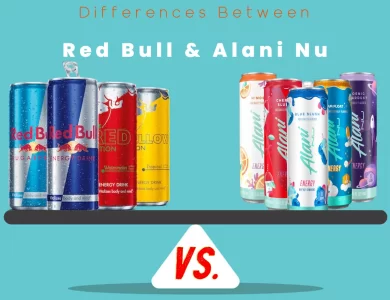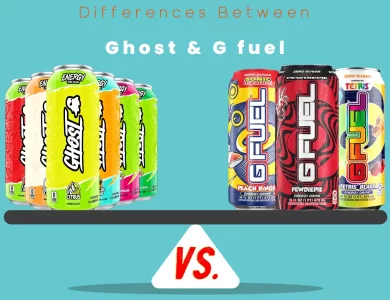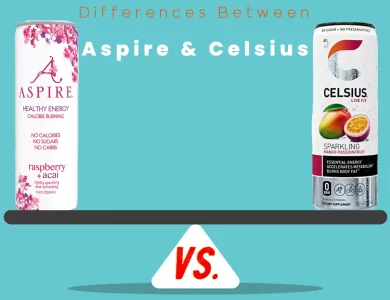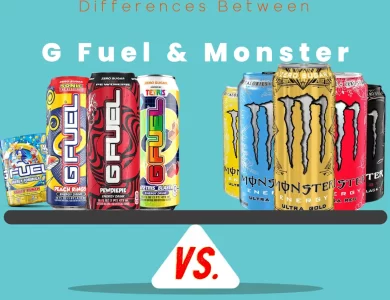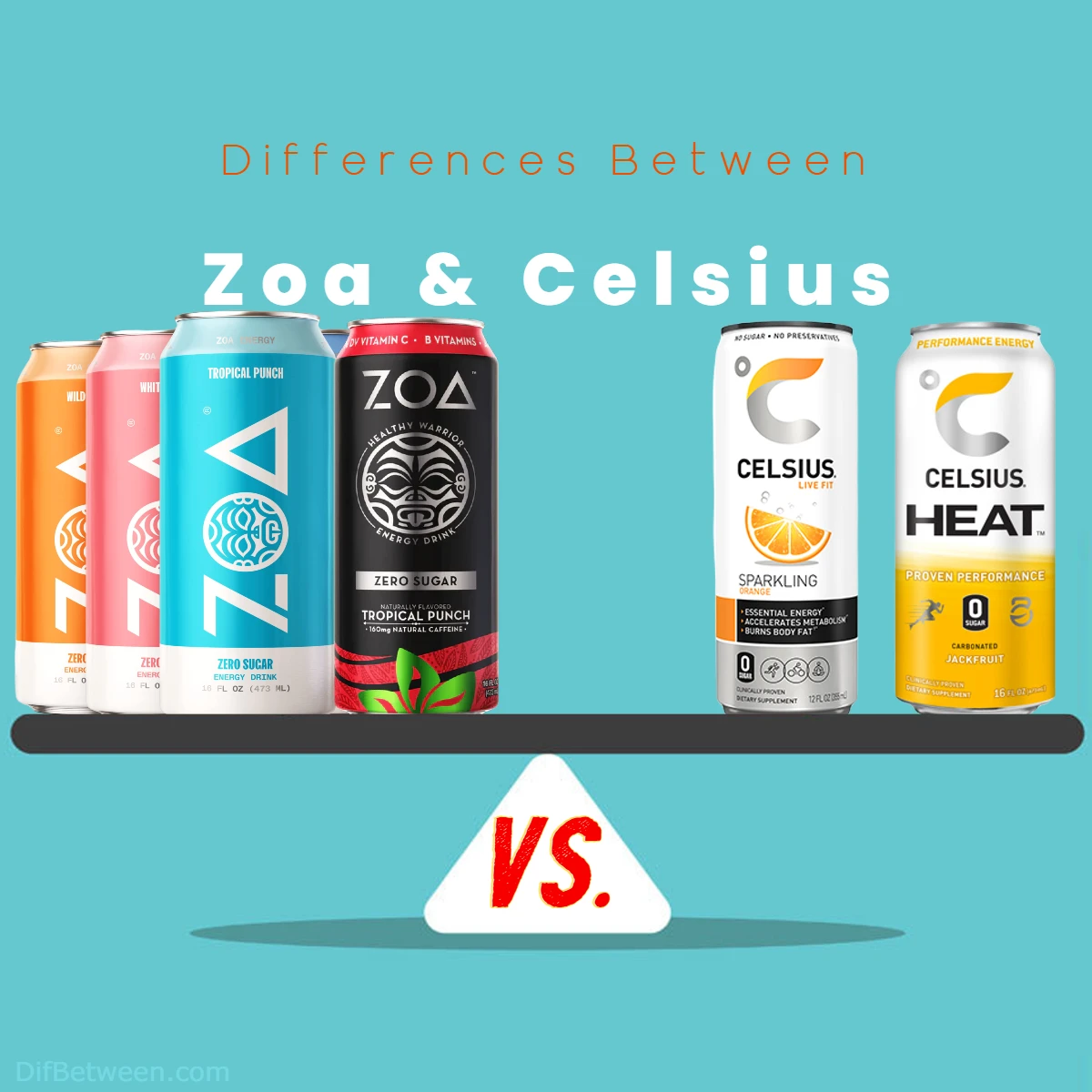
| Aspect | Zoa | Celsius |
|---|---|---|
| Founding Year | 2021 | 2004 |
| Founder | Co-founded by Dwayne “The Rock” Johnson | Founded by Steve Haley and Gerry David |
| Signature Flavors | Original, Pineapple Coconut, Lemon Lime, Wild Orange | Sparkling Orange, Sparkling Kiwi Guava, Sparkling Watermelon |
| Nutritional Value | Zero calories, zero sugar, zero fat, Infused with essential vitamins (Vitamin C, Vitamin D, B-Vitamins) | Zero calories, zero sugar, zero fat (Sparkling Water), B-Vitamins (Sparkling Water) |
| Caffeine Content | 160 mg of caffeine per 16 fl oz (473 ml) can | 200 mg of caffeine per 12 fl oz (355 ml) can |
| Sweeteners | Plant-based sweeteners (stevia leaf extract, erythritol) | Artificial sweetener (sucralose) |
| Target Audience | Fitness enthusiasts, health-conscious individuals | Fitness enthusiasts, athletes |
| Packaging and Availability | Vibrant and energetic branding, widely available | Vibrant packaging, widespread availability |
| Environmental Initiatives | Partners with Plastic Bank to remove plastic waste, tree-planting efforts | Uses recyclable cans, energy-efficient manufacturing |
| Pricing and Affordability | Relatively higher price point | Competitive pricing |
| Additional Functional Benefits | Electrolytes (potassium, magnesium) | B-Vitamins (Sparkling Water) |
| Beverage Variety | Sparkling water, energy drinks, teas | Sparkling energy drinks, non-sparkling performance drinks, functional water (CBD-infused) |
| Online Presence | Strong online presence, active social media engagement | Active on social media, customer engagement efforts |
| Market Reach | Expanding global presence | Global distribution, available in numerous countries |
| Innovations and Future Prospects | Emphasis on health, fitness, and sustainability | Focus on functional beverages, poised for growth and innovation |
Now that we’ve explored the intriguing differences between Zoa and Celsius, the decision is yours to make! Whether you’re an exercise enthusiast, a health-conscious individual, or just a lover of all things fizzy, these sparkling water brands offer unique experiences to suit your tastes and lifestyle. If you’re drawn to natural ingredients, sustainability, and a splash of celebrity charm, Zoa might be your sparkling soulmate. On the other hand, if you crave an energy-boosting companion that fuels your workouts and unveils a myriad of flavors, Celsius has got your back. So, raise your can high and cheers to informed hydration! Now, go ahead and read the full blog to quench your thirst for knowledge and make the sparkling decision that’s perfect for you. Cheers!
Differences Between Zoa and Celsius
The Genesis of Zoa and Celsius
Let’s start by tracing the origins of these two contenders in the sparkling water arena:
Zoa:
Zoa, the brainchild of none other than Dwayne “The Rock” Johnson, first hit the markets in 2021. This sparkling water brand was born from a vision to create a clean, natural, and tasty beverage that could elevate hydration to a whole new level. Dwayne Johnson’s passion for health and fitness paved the way for Zoa’s conception, and the brand quickly gained attention for its celebrity endorsement and commitment to high-quality ingredients.

Celsius:
In the other corner, we have Celsius, a veteran in the sparkling water industry. Established back in 2004, Celsius has been on a mission to revolutionize the beverage world by offering a range of fitness drinks that are not only refreshing but also infused with energy-boosting elements. Celsius gained immense popularity among fitness enthusiasts and health-conscious individuals who sought a beverage that complemented their active lifestyle.
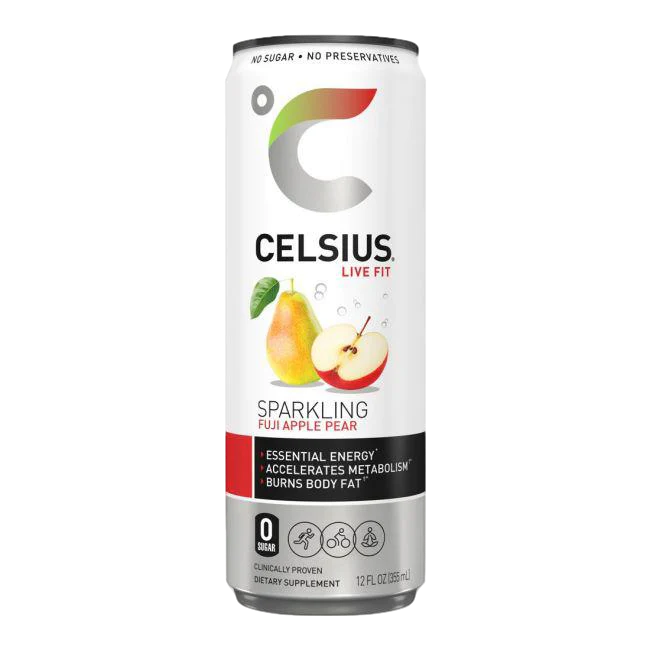
Flavor Explosion: Zoa’s Signature Tastes vs. Celsius Classics
One of the primary aspects that set Zoa and Celsius apart lies in their flavor profiles:
Zoa:
Zoa boasts an impressive lineup of signature tastes, carefully crafted to tantalize your taste buds and keep you hydrated in style. With flavors like “Original,” “Pineapple Coconut,” “Lemon Lime,” and “Wild Orange,” Zoa’s offerings promise a burst of natural fruit essence in every sip. The brand takes pride in using plant-based sweeteners and natural flavors, appealing to those seeking a healthier alternative to sugary beverages.
Celsius:
Celsius, on the other hand, is renowned for its classic offerings with a fitness-oriented twist. While they do offer refreshing sparkling water, their real forte lies in their line of energy drinks, which are designed to boost metabolism and enhance performance during workouts. Some of their popular flavors include “Sparkling Orange,” “Sparkling Kiwi Guava,” and “Sparkling Watermelon,” each infused with the brand’s proprietary energy blend that includes caffeine from natural sources, guarana extract, and B-vitamins.
For a quick comparison, here’s a table showcasing some of the signature flavors from both Zoa and Celsius:
| Brand | Signature Flavors |
|---|---|
| Zoa | Original, Pineapple Coconut, Lemon Lime, Wild Orange |
| Celsius | Sparkling Orange, Sparkling Kiwi Guava, Sparkling Watermelon |
The Lowdown on Nutritional Value
When it comes to choosing a sparkling water beverage, understanding the nutritional value is crucial. Let’s take a closer look at the nutritional aspects of Zoa and Celsius:
Zoa:
Zoa’s commitment to using clean, natural ingredients is evident in its nutritional profile. Each 16 fl oz (473 ml) can of Zoa contains zero calories, zero grams of sugar, and zero fat. Furthermore, it is infused with essential vitamins such as Vitamin C, Vitamin D, and a host of B-Vitamins, making it a hydrating option that supports overall well-being.
Celsius:
Celsius, known for its energy-enhancing capabilities, offers a diverse range of beverages, including those with varying calorie counts. Their sparkling water line generally contains no calories, no sugar, and no fat, much like Zoa. However, their energy drinks typically contain around 10 calories per 12 fl oz (355 ml) serving and are sweetened with sucralose. The real kicker lies in Celsius’ energy blend, which includes ingredients like caffeine and guarana extract, designed to provide a boost during physical activity.
Here’s a quick comparison table to highlight the nutritional distinctions between Zoa and Celsius sparkling water:
| Brand | Calories per 16 fl oz (473 ml) | Sugar per 16 fl oz (473 ml) | Fat per 16 fl oz (473 ml) | Sweeteners | Vitamins |
|---|---|---|---|---|---|
| Zoa | 0 | 0g | 0g | Plant-based | Vitamin C, Vitamin D, B-Vitamins |
| Celsius | 0 | 0g | 0g | Sucralose | B-Vitamins |
Caffeine Content: Zoa vs. Celsius
Caffeine content is an important consideration for those who want to manage their daily caffeine intake or are sensitive to caffeine. Let’s explore how Zoa and Celsius compare in terms of their caffeine content:
Zoa:
Zoa Energy Drink contains 160 mg of caffeine per 16 fl oz (473 ml) can. With this caffeine content, Zoa provides a moderate energy boost, making it a suitable choice for those seeking a refreshing beverage with a manageable caffeine level.
Celsius:
Celsius Energy Drink packs a stronger punch with 200 mg of caffeine per 12 fl oz (355 ml) can. This higher caffeine content is designed to provide a more potent energy-enhancing effect, making it an appealing option for individuals seeking a more significant boost during their workouts or other activities.
Sweeteners: Natural vs. Artificial
Now, let’s delve deeper into the sweeteners used in both Zoa and Celsius beverages:
Zoa:
Staying true to its ethos of providing clean and natural hydration, Zoa opts for plant-based sweeteners like stevia leaf extract and erythritol. These sweeteners offer a delightful taste without the added calories and potential blood sugar spikes associated with traditional sugar. For those who prefer to avoid artificial sweeteners, Zoa’s commitment to using natural alternatives is certainly appealing.
Celsius:
Celsius, in its traditional energy drinks, utilizes sucralose as the primary sweetener. Sucralose is an artificial sweetener that imparts sweetness without contributing to caloric intake. While it has been approved as safe for consumption by various health authorities, some individuals may prefer to steer clear of artificial sweeteners altogether.
Target Audience: Fitness Enthusiasts vs. Health-Conscious Individuals
Both Zoa and Celsius cater to specific target audiences, and understanding their primary consumer base can help you determine which brand aligns better with your preferences:
Zoa:
Zoa’s creation was heavily influenced by Dwayne Johnson’s dedication to health and fitness. As a result, the brand naturally appeals to fitness enthusiasts, athletes, and individuals leading an active lifestyle. With its emphasis on using high-quality, natural ingredients, Zoa has also garnered a loyal following among health-conscious individuals seeking a refreshing beverage that complements their commitment to overall well-being.
Celsius:
Celsius, with its energy-infused lineup, primarily targets fitness enthusiasts and those seeking an energy boost during workouts. The brand’s focus on performance-enhancing elements like caffeine and B-vitamins resonates with gym-goers and athletes looking for a beverage that supports their physical activities.
Packaging and Availability
Packaging and availability are crucial factors to consider, as they can impact your overall experience with a sparkling water brand:
Zoa:
Zoa’s packaging exudes a sense of energy and vibrancy, with each can featuring the brand’s signature logo and distinct flavor labels. As for availability, being associated with a prominent figure like Dwayne Johnson has undoubtedly given Zoa an edge, making it widely accessible through various retailers and online platforms.
Celsius:
Celsius’ packaging, too, reflects its commitment to fitness and energy. Their cans often sport vibrant colors and bold branding, making them stand out on the shelves. Celsius has a well-established presence in the market, and its popularity has led to widespread availability in various stores and online channels.
Social Impact: Zoa’s Environmental Initiatives vs. Celsius’ Sustainability Efforts
In this environmentally conscious era, brands’ efforts towards sustainability and social impact have become increasingly relevant. Let’s explore what Zoa and Celsius are doing in this realm:
Zoa:
Zoa has made sustainability a priority by taking several eco-friendly initiatives. For starters, they have partnered with Plastic Bank to remove plastic waste from the environment and support communities in need. Additionally, Zoa is involved in tree-planting efforts to offset its carbon footprint, showcasing its commitment to environmental conservation.
Celsius:
While Celsius does not have a specific environmental initiative tied directly to their sparkling water line, they have taken steps to improve their overall sustainability. They use recyclable cans for their products and focus on creating energy-efficient manufacturing processes to reduce their ecological impact.
Pricing and Affordability
For many consumers, pricing plays a crucial role in their purchasing decisions. Let’s assess how Zoa and Celsius fare in terms of affordability:
Zoa:
Given its relatively recent entry into the market and the use of premium ingredients, Zoa’s sparkling water might be priced slightly higher than some other competitors. However, it’s essential to consider the brand’s commitment to quality and sustainable practices when evaluating its value for money.
Celsius:
Celsius, with its established presence in the market, offers competitive pricing for its sparkling water line. While their energy drinks may have a slightly higher price point due to the added functional benefits, their sparkling water products generally align with the pricing of other popular sparkling water brands.
Brand Recognition and Popularity
When it comes to brand recognition and popularity, both Zoa and Celsius have garnered significant attention in the sparkling water market. Let’s explore their rise to fame and their current standing:
Zoa:
As a relatively newer entrant, Zoa benefited from the star power of its co-founder, Dwayne “The Rock” Johnson. His celebrity endorsement and active involvement in promoting the brand helped Zoa gain rapid recognition and a substantial following. Additionally, Zoa’s commitment to using natural ingredients and its emphasis on health and fitness resonated with consumers seeking a healthier alternative to traditional sugary beverages.
Celsius:
Celsius has had a longer history in the beverage industry, and over the years, it has cultivated a dedicated fan base, especially among fitness enthusiasts and athletes. The brand’s focus on providing energy-boosting drinks for active individuals has garnered significant attention, and Celsius is now widely recognized as a go-to option for those seeking a refreshing beverage to complement their workouts.
Additional Functional Benefits: Electrolytes and More
Apart from their distinct flavor profiles, both Zoa and Celsius offer additional functional benefits that may appeal to specific consumer needs:
Zoa:
Zoa’s commitment to providing a well-rounded beverage is evident in its inclusion of essential electrolytes in its sparkling water. Electrolytes, such as potassium and magnesium, play a crucial role in maintaining proper hydration and supporting muscle function. For individuals leading an active lifestyle or engaging in intense physical activities, the addition of electrolytes can be beneficial.
Celsius:
Celsius, as an energy-enhancing brand, infuses its sparkling water line with B-vitamins, which are essential for metabolism and overall energy production in the body. While the energy blend in their energy drinks contains caffeine and other performance-enhancing elements, their sparkling water offers a milder boost with the inclusion of B-vitamins.
Beverage Variety: Beyond Sparkling Water
Both Zoa and Celsius venture beyond the realm of sparkling water to offer consumers a diverse range of beverage options:
Zoa:
While Zoa’s primary focus is on its sparkling water line, the brand has expanded its offerings to include energy drinks and teas, each designed to cater to specific hydration and energy needs. This expansion allows consumers to choose beverages that suit their preferences and lifestyle.
Celsius:
Celsius, as a brand dedicated to energy-enhancing drinks, offers a wide array of products, including sparkling energy drinks, non-sparkling performance drinks, and even a line of functional water infused with CBD. This diverse selection caters to different tastes and lifestyles, making Celsius a versatile option for various consumer needs.
Online Presence and Customer Engagement
In the digital age, a brand’s online presence and customer engagement play a pivotal role in shaping its reputation. Let’s see how Zoa and Celsius fare in this aspect:
Zoa:
As a brand with a prominent co-founder, Zoa enjoys a robust online presence, with a significant following on social media platforms. Dwayne Johnson’s involvement in promoting the brand has helped create a buzz around Zoa and fostered direct engagement with consumers through various online channels.
Celsius:
Celsius, too, maintains a strong online presence, with an active social media presence and a vibrant community of customers. Their engagement efforts include fitness challenges, interactive campaigns, and collaborations with influencers, allowing them to connect with their audience on a deeper level.
Market Reach: Global and Local Presence
The global and local market reach of both brands influences their accessibility to consumers worldwide:
Zoa:
While Zoa’s association with Dwayne Johnson has undoubtedly propelled its initial market reach, the brand’s wide distribution network ensures that it reaches consumers across various regions. As its popularity grows, Zoa continues to expand its presence in both local and international markets.
Celsius:
Having been in the market for longer, Celsius has had more time to establish a strong market reach. The brand’s products are available in numerous countries, catering to a global audience. Celsius’ widespread availability in various retail outlets and online platforms contributes to its broad market reach.
Innovations and Future Prospects
In the competitive world of beverages, innovation is essential for maintaining relevance and attracting new consumers. Let’s take a glimpse into the potential future prospects for Zoa and Celsius:
Zoa:
With its strong emphasis on health, fitness, and sustainability, Zoa has positioned itself as a brand committed to offering natural, clean, and nutritious beverages. As consumer preferences continue to evolve towards healthier options, Zoa’s dedication to quality ingredients and its environmental initiatives could lead to further growth and recognition.
Celsius:
Celsius’ focus on functional beverages and energy-boosting products has driven its success in the market. As the demand for functional beverages increases, Celsius is well-positioned to continue its growth and potentially explore more innovative offerings to cater to diverse consumer needs.

Zoa or Celsius: Which One Should You Choose?
Choosing between Zoa and Celsius ultimately comes down to your personal preferences, lifestyle, and specific needs. Both brands offer distinct features and benefits, making them appealing to different types of consumers. To help you make an informed decision, consider the following factors:
Choose Zoa if:
- You prioritize natural ingredients: Zoa’s commitment to using plant-based sweeteners and natural flavors may appeal to those seeking a beverage without artificial additives.
- Environmental impact matters to you: Zoa’s partnerships with Plastic Bank and tree-planting efforts showcase their dedication to sustainability and reducing their ecological footprint.
- You want a celebrity-endorsed product: If having a beverage co-founded by Dwayne “The Rock” Johnson excites you or aligns with your admiration for him, Zoa may be the perfect choice.
- You prefer a focus on overall health and hydration: With essential vitamins like Vitamin C, Vitamin D, and B-Vitamins, Zoa’s sparkling water aims to provide not only hydration but also potential nutritional benefits.
Choose Celsius if:
- You seek an energy boost: Celsius’ sparkling water line contains a proprietary energy blend with caffeine from natural sources and B-Vitamins, making it an excellent choice for those looking to stay energized during workouts.
- You enjoy a variety of flavors: Celsius offers a diverse range of flavors, both in its sparkling water line and energy drinks, allowing you to explore different tastes to suit your palate.
- Fitness and performance are important to you: If you lead an active lifestyle and desire a beverage that supports your fitness endeavors, Celsius’ energy-enhancing drinks cater specifically to this need.
- You want widespread availability: Having been in the market for longer, Celsius enjoys broad distribution, making it more readily available in various stores and locations.
In the end, the choice between Zoa and Celsius boils down to your unique preferences, whether you prioritize natural ingredients and environmental initiatives (Zoa) or seek an energy boost and diverse flavors (Celsius). Whichever brand you choose, both offer refreshing sparkling water options that can add a delightful fizz to your daily hydration routine. So, raise your can, make your choice, and enjoy the sparkling journey ahead!
FAQs
Zoa and Celsius differ in various aspects, starting with their founding years and brand visions. Zoa, co-founded by Dwayne “The Rock” Johnson in 2021, emphasizes natural ingredients, including plant-based sweeteners and natural flavors. On the other hand, Celsius, established in 2004, focuses on energy-enhancing beverages with its proprietary energy blend containing caffeine and B-vitamins. Additionally, Zoa places a strong emphasis on sustainability, partnering with Plastic Bank and engaging in tree-planting efforts, while Celsius utilizes recyclable cans to reduce its environmental impact.
Celsius takes the lead in terms of flavor variety, offering a wide array of options across its sparkling energy drinks, non-sparkling performance drinks, and even functional water infused with CBD. Some of its popular flavors include Sparkling Orange, Sparkling Kiwi Guava, and Sparkling Watermelon. While Zoa boasts signature tastes like Original, Pineapple Coconut, Lemon Lime, and Wild Orange, Celsius provides a broader spectrum to cater to diverse taste preferences.
Both Zoa and Celsius sparkling water contain zero calories, zero sugar, and zero fat, making them ideal options for those seeking a guilt-free beverage. However, Zoa takes it a step further by infusing its sparkling water with essential vitamins, such as Vitamin C, Vitamin D, and B-Vitamins, providing potential additional health benefits.
No, the sweeteners differ between Zoa and Celsius. Zoa uses plant-based sweeteners like stevia leaf extract and erythritol, while Celsius uses the artificial sweetener sucralose in its traditional energy drinks.
Zoa primarily targets fitness enthusiasts, health-conscious individuals, and those looking for natural and clean hydration options. Its association with Dwayne “The Rock” Johnson also appeals to his fan base. On the other hand, Celsius caters to fitness enthusiasts, athletes, and individuals seeking an energy boost during workouts, aligning with its focus on performance-enhancing beverages.
Both Zoa and Celsius enjoy a significant market reach. However, as Celsius has been in the market for a longer duration, it generally has broader distribution and is more readily available in various retail outlets and online platforms.
Zoa demonstrates its commitment to sustainability by partnering with Plastic Bank to remove plastic waste from the environment and engaging in tree-planting efforts to offset its carbon footprint. Celsius, while not having specific initiatives tied to its sparkling water line, uses recyclable cans and focuses on energy-efficient manufacturing processes to reduce its environmental impact.
Zoa goes the extra mile by including essential electrolytes like potassium and magnesium in its sparkling water, enhancing hydration and supporting muscle function. On the other hand, Celsius focuses on its energy-enhancing properties, infusing its sparkling water with B-Vitamins to boost metabolism and energy production.
Zoa’s relatively recent entry into the market and its use of premium ingredients may lead to a slightly higher price point compared to some competitors. In contrast, Celsius, with its established presence, generally offers competitive pricing for its sparkling water line.
Yes, both Zoa and Celsius have a global market reach. Zoa, despite being newer, has been expanding its presence, and both brands are available in numerous countries, making them accessible to consumers worldwide.
Read More:
Contents
- Differences Between Zoa and Celsius
- The Genesis of Zoa and Celsius
- Flavor Explosion: Zoa’s Signature Tastes vs. Celsius Classics
- The Lowdown on Nutritional Value
- Caffeine Content: Zoa vs. Celsius
- Sweeteners: Natural vs. Artificial
- Target Audience: Fitness Enthusiasts vs. Health-Conscious Individuals
- Packaging and Availability
- Social Impact: Zoa’s Environmental Initiatives vs. Celsius’ Sustainability Efforts
- Pricing and Affordability
- Brand Recognition and Popularity
- Additional Functional Benefits: Electrolytes and More
- Beverage Variety: Beyond Sparkling Water
- Online Presence and Customer Engagement
- Market Reach: Global and Local Presence
- Innovations and Future Prospects
- Zoa or Celsius: Which One Should You Choose?
- FAQs

